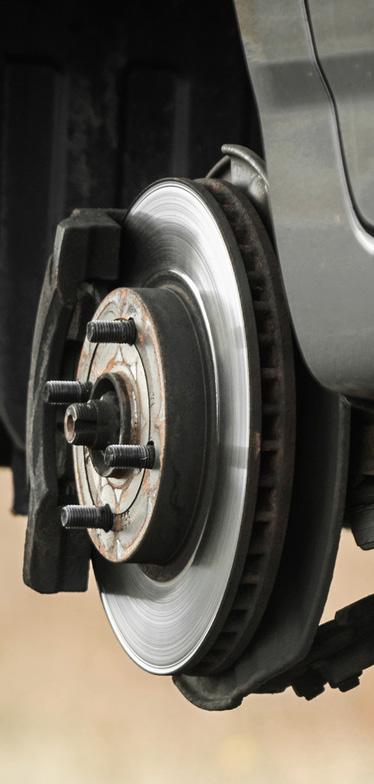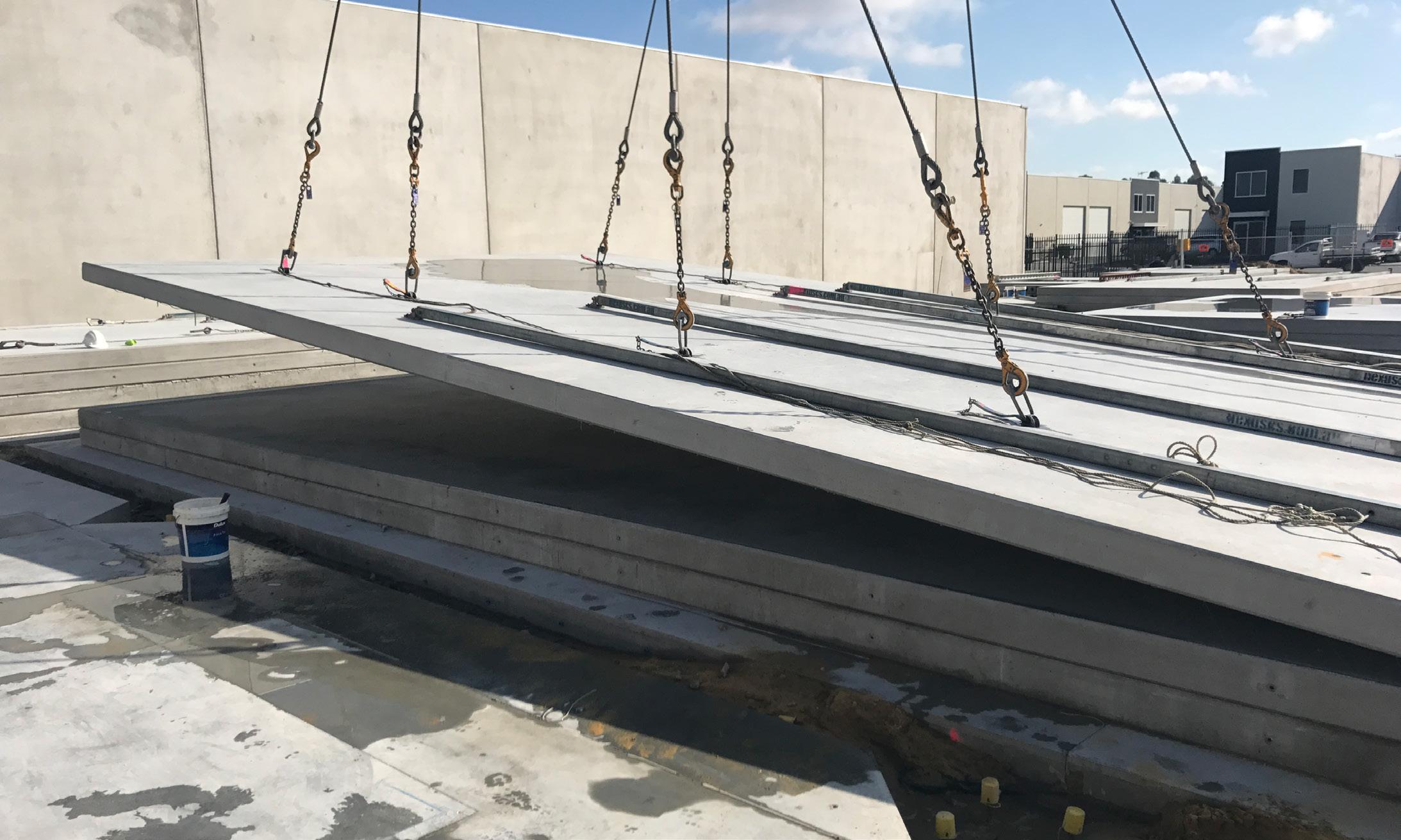
27 minute read
When you need the best
When your client has a cracked windscreen, it might be due to an accident or if it’s a broken rear window, it might have been an act of vandalism. Whatever the cause, you want to be confident that your client will be well looked after, and the repair will be done quickly - to the highest standard - using the latest technology and techniques.
The good news is, there’s a group of passionate people at the top of their game when it comes to vehicle glass repair. Smith&Smith’s® goal is to return every single vehicle to the road safely.
Managing director Michelle van Gaalen says achieving that goal starts with helping their people be the best they can be. “By looking after our people, we are looking after our customers.”
That’s why every two years the company holds its Best of New Zealand competition, in which six leading Smith&Smith® technicians have the opportunity to showcase their vehicle glass repair and replacement expertise, along with their customer service skills. Having undertaken rigorous pre-comp testing and assessments, the finalists are selected from a pool of technicians across Smith&Smith’s® nationwide network. It’s a coveted competition, because the technician who wins, qualifies to compete in the international event ‘The Best of Belron’ held in Spain in 2020.
With so much at stake it’s not surprising that on the 31st October at the Hilton Hotel in Auckland, there were six very nervous but excited technicians awaiting the sound of the hooter to start their first heat. Adding to the intensity, was a room of

spectators made up of Smith&Smith’s® key clients, suppliers, employees, and the competitors’ supporters. The six finalists from around the country, including the first-ever female finalist, had to carry out a series of tests and challenges as judges closely assessed the quality of their work.
One of the challenges was a full windscreen replacement and calibration.
“Windscreens provide up to 30% of a vehicle’s structural strength, so ensuring the windscreen has been correctly replaced and fitted was a key part of the challenge,” Van Gaalen said, “Windscreens are no longer just for seeing through, but are a key interface with a vehicle’s Advanced Driver Assistance Systems (ADAS)”.
Which is why a critical part of the windscreen replacement test was ensuring the technicians had carried out the proper calibration of their vehicle’s ADAS – a task that Smith&Smith® only allows technicians fully trained in calibration to undertake. Van Gaalen thinks that most motorists don’t need to know the ins and outs of windscreens, but notes that making sure windscreens are properly repaired or replaced and driver assistance systems are recalibrated is critical to ensuring the safety of drivers and their passengers. It’s also important for insurance purposes.
All the technicians competed to a high standard, but there could be only one winner. Hamish Bedwell from Dunedin was crowned The Best of New Zealand and wins the chance to compete in the international competition Best of Belron 2020 in Spain.
Bedwell said it was such a big relief when the final event finished and it felt like a huge weight had been lifted from his shoulders.
“I’m really proud to bring it [the Best of NZ title] back to the South Island, but I think I’m going to have to shout lunch on Monday.”
Bedwell says: “There was such a huge feeling of pride among the Smith&Smith® team to see six of our best and brightest shine so bright in a pressure-cooker environment. And we know this wasn’t just for show, but how they perform every day of the week.”

What’s grossly negligent?
QUESTION… Client got a flat tyre on his farm while fetching wood in his ute. Changed the tyre on his ute and went back home. He replaced the two front tyres of the ute, as he had a spare set in his garage. Client didn't realise that the tyres were a different size. After returning from picking up a second load of wood on the farm, he realised that there was oil coming out from the front of the vehicle. The transmission is damaged and quoted repair costs are $15,000. The Insurer is considering declining the claim under the reasonable care and unsafe condition: "The insured must take all reasonable steps to protect the insured vehicle from loss and to avoid liability. Any insured vehicle while it is being driven in an unsafe condition which contributes to an accident. This includes any condition: (a) which is contrary to any recommendation by the manufacturer of the insured vehicle; or (b) as a result of which the insured vehicle is not fit to deal with any peril likely to be encountered during the course of its operation. However, this exclusion only applies if insured or the person in charge of the insured vehicle was aware, or with reasonable diligence ought to have been aware, of the unsafe condition." I think it is very difficult to decline a claim under the reasonable care condition and unsafe condition. To decline a claim under this policy condition it is up to the insurer to prove the insured’s conduct was reckless, grossly careless, or grossly negligent. Proof of mere negligence or carelessness is not sufficient. This is because insurance, by its nature, protects the insured against his/her negligence and mere inadvertence. New Zealand courts consider what a reasonable person would have done in the circumstances of each particular case. As such, it is recognised that an insured has breached his/her duty of reasonable care if he/she disregarded, or failed to recognise, a significant risk that would have been obvious to a reasonable person (who would not have taken such a risk). Note that on the claim form the insured has put that he did not realise the tyres were a slightly different size, so the insurer cannot prove that the insured was aware of the risk and disregarded it, because he wasn’t even aware of the issue. I think all we are looking at is negligence on the part of the insured which, as outlined above, is specifically what the policy is there to cover. Has anyone had a similar claim or some advice about the above claim and the likelihood of overturning the Insurers decision to decline?
REPLY… CROSSLEY GATES The threshold for recklessness is very high because it is the intention of these policies to cover (mere) negligence. So recklessness requires something more than just negligence.
I believe the insured's error in this scenario is negligent but well below the high threshold for recklessness.
Do you have a question for our experts?


If so, visit iNavigator, www.inavigator.co.nz, or the IBANZ website, www.ibanz.co.nz - and let us know.
Unused payout
QUESTION… If a retail client suffers a total loss and decides not to reinstate/ reopen their business but walk away, are they still entitled to make a claim for their stock which was insured under their material damage policy? They have no intention of repurchasing their stock but wish to know whether they would still be cash settled for the stock that was lost. The cause of the loss was a fire that destroyed all their stock.

REPLY… CROSSLEY GATES I cannot see why not. The insured property has been destroyed by an insured peril. The insured has lost the cost to it of buying all that stock. The decision not to carry on business further does not change this.
Timing

QUESTION… If cover has been changed from one provider to another at renewal and it has always been known that policies take effect and expire on 4pm on the day, what happens if a claim occurs right on 4pm? Who is considered to be the insurer, the out-going insurer or the new insurer?
REPLY… CROSSLEY GATES Possibly double insurance, subject to the double insurance clauses in both policies. However, the insured peril would have to occur exactly at 4 pm, not a second before and not a second after - an unlikely scenario?

Carpet conundrum
QUESTION… We all recall the change to personal lines policies a while ago where insurers decided to determine “carpets” were now insured under a house policy rather than under contents, as had been the case previously. Where a person owns a unit in a residential body corporate, however, the building is insured by the body corporate (under an MD multi-unit or house policy) - but often the owner arranges to lay their own carpet, but this appears to be uninsured as carpets are excluded under most contents policies these days! Our body corporate manager states that this is not their problem and is over to the owner, as claims for carpets could affect the loss ratio and thus increase future premiums for all unit owners. Can anyone give me their thoughts on how best to advise owners? Without having done the exercise, are contents insurers generally prepared to delete the exclusion in such circumstances?
REPLY… CROSSLEY GATES The cover for carpets was moved from a contents policy to a house policy for a good reason.
Land law says that anything affixed to a structure on the land (a house) is part of that structure, and anything sitting there by its own weight alone is a chattel and not part of the structure.
Applying this law, any kind of fixed-down carpet that is not lying there by virtue of its own weight alone is part of the house at law. Therefore, the cover belongs in the house policy along with all the other things affixed to the house. This applies equally in a body corporate situation. The carpet is not a chattel and the unit owner's contents policy will not cover it.
Rather the body corporate's principal insurance policy will. Yes, carpet claims will increase the loss ratio for the body corporate's insurance, but this is unavoidable when the carpets are part of the body corporate structure like other features of a unit that are affixed to it like wiring and plumbing etc.
Is this damage?
QUESTION… A retirement home was built a couple of years ago, and during construction, it would seem that a concrete core that had been cut for drain/sewage was dropped into the system. When the room was taken into use, a blockage of the grey water system occurred fairly quickly. An issue arose with sewage backing up and flowing through the shower and toilet. It was thought to be the resident putting paper towels into the toilet. However, three weeks later, the issue arose again and on further investigation a piece of concrete core was discovered in the soil stack. Over time it had likely moved through into the main soil stack. As the client was proactive, resultant damage was avoided. However, reasonable costs were incurred to find the object in the system and remove, clean and reinstate the system. Under the MD policy, the insurer agrees to cover the insured for all loss or damage to the property insured during the period of cover due to an event. An event is defined as: Something that happens including continuous or repeated exposure to substantially the same conditions, or a series of things that happen resulting from, or attributable to one source or original cause, which results in loss or damage.
Loss or damage is defined as: Loss or damage is physical loss of or damage to the property insured, that is unintended or unforeseen by the insured. My question is - is the sewage system damaged? The concrete being in the system was accidental, the system was not working as it should due to the concrete core - is that damage? The client has acted very quickly and averted any resultant damage. The insurer is suggesting that the policy is not triggered as there has been no damage to the pipe and of course there is no resulting damage. I have also argued that the cost of rectifying the issue should be covered under the Protection Costs clause which reads: This policy extends to cover the insured for any costs reasonably incurred directly resulting from fighting or controlling any event that involves or threatens to involve the property insured. The insurer has denied under this clause also. The clauses section under the policy states: The terms of these clauses attaching to this policy are deemed to be incorporated within the policy. If there is any conflict or inconsistency between the clause, and any other terms of the policy (other than the general exclusions), then the terms of the clause will prevail.
REPLY… CROSSLEY GATES The insurer is relying on a well-known insurance case in Australia with similar facts, which supports its position. The issue of what amounts to damage has been the subject of many court cases and is a complex area of insurance law.
Big changes are coming to our industry. Are you equippedto weather them?



Apex are prepared to meet the demands of a changing world. Considering selling your business or working under our licence? Let’s talk options.
WHAT’S THE DIFFERENCE BETWEEN MANUFACTURE AND CONSTRUCTION?
The insured company make “tilt panels” on construction sites. Tilt panels are horizontal concrete slabs that will eventually become walls of a building. To make a tilt panel, the company pours concrete into a framework that is lying on a foundation slab. Once the concrete has dried, a crane lifts the panel off the slab and into a vertical position.
One crucial element of tilt panel construction is making sure that the panel comes away from the foundation slab, undamaged. The company normally achieves this by painting a release agent on to the slab before “construction” or “installation” or “erection”. In interpreting this policy, we had to consider the normal (dictionary) meanings of the words. We also noted that dictionary definitions of “manufacture” supported the company’s view. Manufacturing is making something from raw materials. The “something” that is manufactured is a discrete element that will be used/incorporated as part of an overall construction (such as the putting together of a building).
We considered that the manufacturing process was at an end (meaning the construction/installation/erection process began) once the tilt
it pours the concrete. Unfortunately, during a job in January 2017, light rain washed away or diluted the release agent. When it came time to lift eight tilt panels, they stuck to the slab. All eight were damaged; four were unusable. The slab was also damaged.
The company made a claim with its insurer for around $33,000. THE INSURER’S VIEW
The insurer declined the claim based on an exclusion clause that said the policy did not insure property in the course of construction or installation or erection. THE COMPANY’S VIEW
The company complained to FSCL. It said that demoulding the tilt panels from the slab and the framework is part of the manufacturing process, rather than the construction process. It also said that the tilt panels were at that stage not ready for installation/erection. FSCL REVIEW
We noted that the insurance policy did not define the words

panels were complete. In our view, the tilt panels were not complete until they had been demoulded and released. They could not be used in the construction, or installed or erected, until then. Until they were demoulded and released, they were still in the manufacturing phase. OUTCOME
We issued a notice of recommendation, upholding the company’s complaint. The insurer accepted our interpretation of the wording of the insurance policy. The insurer reassessed the insurance claim and agreed to pay.
KEY INSIGHTS
From time to time, we are called upon to interpret the wording of insurance policies. It is important that the wording is precise. Important words should be defined, particularly if the insurer thinks they should have a slightly different meaning from the normal dictionary meaning.
MOTHER CAUGHT OUT BY DAUGHTER'S NON-DISCLOSURE
Aclient, with the help of a broker, arranged insurance for herself and her daughter to drive a work vehicle. The woman was aware that her daughter had a couple of issues in the past and wrote on the insurance application form that she: • had been involved in a car accident two years earlier and • had a drunk in charge of a motor vehicle conviction about six years before that. She also answered “yes” to the question: “Ever had a Driver's Licence endorsed, suspended or cancelled?” but she answered “no” to the question: “Ever been convicted of a motoring offence?”
In addition, the daughter had been arrested while overseas with a small quantity of drugs in her possession. The client told the broker about the drug conviction but the broker said not to worry about it. The broker did not ask any questions about the issues disclosed on the application form, and neither did the insurer.
About two years later, the daughter was involved in an accident, took the car to a panel beater, had the car repaired and did not mention it to her mother. A couple of months after that, the daughter was involved in another accident. This time the panel beater called her mother and she agreed to pay the $400 excess and picked up the car.
The broker then called the client and said the insurer had found out that her daughter had five convictions, including: • excess breath alcohol in 2009 • excess breath alcohol in 2010 • driving while licence suspended and careless driving causing injury in 2015 • careless or inconsiderate vehicle operation in 2015. The broker said that if the client had disclosed this information, the insurer would have applied a $4000 excess and increased her premium. The woman asked the broker to put this in writing and waited for the letter to arrive.
Some months later, she was visited by a debt collection agent, wanting payment of $7200, being the two $4,000 excesses for each insurance claim, less the $400 excess already paid to have the car released.

The client was shocked. She did not know anything about the first accident. She felt her broker should have asked more questions when she first applied for the insurance. Unhappy with the broker’s advice, she asked the broker to contribute to the excess she was now having to pay. The broker initially offered $2100, because he had failed to advise her to disclose her daughter’s overseas drug conviction, but later withdrew the offer. The client referred the complaint to FSCL. DISPUTE
The broker felt his position was clear. The client had failed to disclose her daughter’s convictions and it was her fault the insurer had increased the excess.
The client acknowledged that her daughter’s criminal record was more extensive than she had been led to believe, but said that if the broker had asked more questions about the information, she would have gone to her daughter and asked for further details. She felt the broker’s dismissal of the overseas criminal conviction, which the broker agreed he had dismissed, indicated that the conviction history was not as important as the insurer clearly considered it to be. REVIEW
FSCL discussed the complaint with the client, and she agreed that she should have asked her daughter for more detail and answered “yes” to the question about a conviction for a motoring offence. However, she felt the broker should also contribute to the loss. She said that if she had known the excess was going to be so high, it might have influenced her decision about allowing her daughter to drive the vehicle.
FSCL then contacted the broker and asked whether he would be prepared to consider an early resolution to the complaint. We acknowledged that we were not yet in a position to issue a decision on the rights and wrongs of the situation, and that non-disclosure of criminal convictions is a serious matter, but asked whether, as a matter of expediency, he would be prepared to put an offer on the table. RESOLUTION
The broker offered, and the client accepted, $1200 in resolution of her complaint.
Are you compliant?

By Rod Severn, CEO, Professional IQ College.
As I sit here at a Compliance Symposium in Wellington, listening to industry experts discuss the merits of compliance, I realise how many areas of business this topic actually covers.
Sometimes we forget how far compliance reaches - privacy and data protection, staff, customer and membership data security, boardroom governance, human resources, tax, auditing and fraud, accountancy, employment law and much, much more.
Here at the Professional IQ College, we pride ourselves on delivering high quality Level 5 distance learning that enables brokers and advisers to meet the regulatory obligations of the new regime. But is it enough to meet compliance? Seemingly not!
Each of you collect personal and private data from your clients for your business activities. How many of you are aware of the Privacy Act and its requirements? Did you know there are 12 information privacy principles? Principles 1 to 4 govern the collection of personal information. Principle 5 governs the way it is stored. Principle 6 gives individuals the right to access information about themselves. Principle 7 gives individuals the right to correct information about themselves.
December 2019 Principles 8 to 11 place restrictions on how people and organisations can use or disclose personal information Finally, principle 12 governs how “unique identifiers” such as IRD numbers, bank accounts etc can be used. Refer to www.privacy.org.nz for more detail. One cautionary tale - British Airways got fined £180m for failing to secure their loyalty programme!
How secure is your email service? When was the last time you changed your password? Best practice is to change it every 90 days, especially if you use the same password for more than one application. Like me, you probably have multiple passwords. At last count, I have over 60 individual passwords. If your phone was stolen, how easy would it be for someone to access the data you have stored on it? If it is someone else’s personal data on there and it is accessed without authority, you could be liable. When was the last time you backed up your telephone data? The damage to your brand’s reputation after a data breach could amount to a significant loss of money as well.
Do you accept credit cards payments? If so, do you have PCI DSS? The Payment Card Industry Data Security Standard is a set of security standards designed to ensure that ALL companies which accept, process,

College
store and transmit credit card information maintain a secure environment. Refer www.pcisecuritystandards.org for more information. Do you hire temporary staff, especially migrant workers? Are you aware of the minimum wage rate of $17.70 per hour? New visa rules just introduced put the emphasis on companies to apply for a licence to bring migrant workers into New Zealand. Compulsory accreditation is now required in advance. No accreditation? No visa.
Demonstrated compliance, record-keeping especially around payroll and minimum rates of pay, including holiday pay, working hours and adherence to visa conditions will all be high on the agenda of any visit by the Labour Inspectorate team.
And then there is education and training. As you would know, under the new forthcoming legislation, all Financial Advisers (and some Nominated Representatives) are required to meet the outcomes of Level 5.
For those of you who already have the old National Certificate, you are “grand-parented” straight through. However, it is worth noting, the FMA (at time of licensing) might ask what you have done to bridge the gap between the old certificate and the current New Zealand Certificate in Financial Services.
This is where the Professional IQ College’s bridging programme comes in. It allows you to demonstrate your compliance by showing you have upgraded your knowledge to the latest competency versions. Please visit www.professionaliq.co.nz or contact us for more information. The college has been steadily increasing its enrolment numbers all year. However, as I have confirmed by speaking with many of you, I estimate only around 20% - 25% have actually started their Level 5 journey.
It makes no difference whether you complete Level 1 or Level 2 and there is certainly no need to repeat anything if you have only done Level 1. The FMA is only interested in you completing Level 5; the version is immaterial. It is something we advise you to do now and get out of the way. You will have many distractions coming your way over the next couple of years - disclosure, licensing, FAP decisions, Culture and Conduct reviews, to name a few.
Getting your Level 5 compliance requirements out of the way early will let you focus on some of these bigger issues when you need the time to do so. Compliance might seem somewhat tedious, but it is nothing compared with the consequences when something goes wrong!
Act from a position of strength and preparedness; after all, isn’t that the very crux of the financial services industry. Take your own advice, minimise the risks and attend to this today!
Roger Abel Rothbury Group Limited PO Box 1596 Shortland St, Auckland 1140 Mob: 021 952 230 roger.abel@rothbury.co.nz
Tony Bridgman (President) Executive Director Marsh Ltd PO Box 2221 Auckland 1140 Tel: 09 928 3015 Mob: 021 873 399 tony.j.bridgman@marsh.com
Craig Buckle National Manager, Corporate Risk Solutions Willis New Zealand Ltd PO Box 369 Auckland 1140 Tel: 09 356 9347 Fax: 03 358 3343 craig.buckle@ willistowerswatson.com
STAFF
Michael Collins Student Support Assistant enroll@professionaliq.co.nz
Robyn Gosden Finance & Office Manager DDI: 09 306 1733 Mob: 027 275 2477 robyn@ibanz.co.nz
Sylvia Heywood Academic Manager Professional IQ College DDI: 09 306 1737 sylvia@professionaliq.co.nz
Karen Scard Administration Manager DDI: 09 306 1738 karen@ibanz.co.nz
Rod Severn CEO Professional IQ College DDI: 09 306 1736 Mob: 021 749 202 rod@professionaliq.co.nz
Allan Daly Managing Director Avon Insurance Brokers PO Box 3923 Christchurch Mail Centre Christchurch 8140 Tel: 03 3710 301 Mob: 0275 358 128 allan@avoninsurance.co.nz
Duane Duggan (Immediate Past President) Head of Insurance Legal Crombie Lockwood (NZ) Ltd PO Box 91747 Victoria Street West Auckland Tel: 09 357 4805 Mob: 021 833 286 duane.duggan@crombielock wood.co.nz
Gary Young Chief Executive IBANZ DDI: 09 306 1734 Mob: 027 543 0650 gary@ibanz.co.nz
IBANZ
Physical address: Unit 4D, 2B William Pickering Drive, Rosedale, Auckland 0632 Jo Mason Chief Executive Officer NZ Brokers Management Ltd PO Box 334 012 Sunnynook North Shore City Auckland 0743 Tel: 09 869 2785 jom@nzbrokers.co.nz
Angus McCullough General Manager Marketing & Chief Broking Officer Aon New Zealand PO Box 1184 Shortland Street Auckland 1140 Tel: 09 3629059 angus.mccullough@aon.com
Jason Smith Managing Director Property & Commercial Insurance Brokers PO Box 4 Feilding 4740 Tel: 06 323 8820 Mob: 027 293 8724 jase@pcinsurance.co.nz David Crawford Chair Director, New Zealand Insurance Advisernet NZ Ltd PO Box is 37670 Market Road Auckland 1151 Tel: 09 926 2062 Mob: 021 905 537 dcrawford@ianz.co.nz
Fred Dodds Waikanae Mob: 021 998 906 dodds@nzemail.net.nz
Angi Mann Contract Compliance and Learning and Development Specialist Auckland Mob: 021 293 1724 angim@financialadvice.nz
WANT YOUR VERY OWN COPY OF COVERNOTE?
Each issue of CoverNote is packed with vital information, news, commentry and advise for the insurance industry from experts within the industry. To keep abreast with all the issues affecting New Zealand’s insurance broking industry just email robyn@ibanz.co.nz
TO ADVERTISE... Contact Robert Johnson on: e-Mail: robert@benefitz.co.nz Phone: 09-477 4702 Mobile: 0274-970-712
WE CAN’T MAKE EXCUSES
December 2019
Mailing address: PO Box 302504, North Harbour, Auckland 0751 Toll free: 0800 306 173
Website: www.ibanz.co.nz
CoverNote is published quarterly by IBANZ, the Insurance Brokers Association of New Zealand. All correspondence should be addressed to: CoverNote, PO Box 33-1630 Takapuna, North Shore City, Auckland.

After the event insurance- a new option to reduce litigation risk? 2019 in review - Covernote asked insurers about the year that’s been and what might lie ahead. www.ibanz.co.nz CRACKDOWN ON FRAUD The battle lines have been drawn in the insurance industry’s war against insurance fraud with the establishment of a new Insurance Fraud Bureau set up by the Insurance Council.
Abbott Group Christchurch Adams Trimmer Insurance 1992 Ltd Whangarei Addex Ltd Auckland Advance Insurance Services Ltd Paeroa Advice First Limited Wellington Affiliated Insurance Brokers Ltd Wellington AIB Group Insurance Ltd Lower Hutt AIM Associates Ltd Auckland Albany Insurance Services Ltd Albany Village Amicus Brokers Ltd Christchurch Andrew Scragg & Associates Manukau Aon New Zealand Auckland Apex General Ltd Auckland Ascot Insurance Brokers Ltd Whangarei Atlas Insurance Brokers Ltd Christchurch Austinsure Ltd North Shore City Avon Insurance Brokers Christchurch Baileys Insurance Brokers Ltd Auckland Bay Insurance Brokers Ltd Tauranga Brave Day General Ltd Auckland Bridges Insurance Services Limited Hamilton Broker Direct Services Ltd Christchurch BrokerWeb Risk Services Limited Auckland Builtin New Zealand Ltd Tauranga Cambridge Insurance Brokers Ltd Cambridge Capital Risk Solutions Limited Wellington Card Marketing International Ltd Wellington Cartwright General Insurance Limited Ashburton CBA Insurances Limited Tauranga Certus Insurance Brokers NZ Ltd Auckland Coast Insurance Whangaparaoa Coastal Insurance Brokers Ltd Papamoa Commercial & Rural Insurance Brokers Ltd Alexandra Crombie Lockwood (NZ) Ltd Auckland Dawson Ins. Brokers (Whakatane) Ltd Whakatane Dawson Insurance Brokers (Rotorua) Ltd Rotorua Edward Ruys & Co Ltd Hamilton Emerre & Hathaway Insurances Limited Gisborne Frank Risk Management Cambridge FundAGroup Insurance Brokers Limited Auckland Glenn Stone Insurance Limited Waitakere Grayson & Associates Ltd Auckland Gregan & Company Ltd Papakura GYB Insurance Brokers Ltd Lower Hutt Harden & Hart Insurances Ltd Auckland Hazlett Insurance Brokers Ltd Christchurch Honan Insurance Group (NZ) Ltd Auckland Hood Insurance Brokers NZ Ltd Auckland Hurford Parker Insurance Brokers Ltd Hastings Hutchison Rodway Ltd Auckland ICIB Limited Auckland
ILG Insurance Brokers North Shore City Ingerson Insurances Ltd Wellington Insurance Advisernet NZ Ltd Auckland Insurance Brokers Alliance Ltd Invercargill Insurance People (Fire & General) Limited Auckland Malcolm Wrigley Insurance Services Auckland JRI Limited New Plymouth Luxor Insurance Brokers Ltd Auckland Malcolm Flowers Insurances Ltd Taupo Marsh Ltd Auckland Matt Jensen Insurance Brokers Ltd Taupo McDonald Everest Insurance Brokers Ltd New Plymouth Montage General Insurance Ltd Auckland Multisure Ltd Auckland Nelson Marlborough Insurance Brokers Ltd (NIB) Nelson Neville Newcomb Insurance Brokers Ltd Auckland Northco Insurance Brokers Ltd Masterton Northcrest Insurance Brokers Ltd Auckland O'Connor Warren Insurance Brokers Tauranga OFS Insurance Brokers Ltd Dunedin Omni Fire & General Ltd Auckland Paramount Insurance Agencies Ltd Auckland Partridge Advisory Limited Auckland Paterson & Co NZ Ltd Auckland Penberthy Insurance Ltd Auckland Peter C Cranshaw Insurance Broker Ltd Levin PIC Insurance Brokers Ltd Manukau Primesure Brokers Ltd Auckland Property and Commercial Insurance Brokers Feilding Protekt Insurance Brokers 2008 Ltd Auckland Provincial Insurance Brokers Limited Masterton PSC Connect NZ Limited Auckland River City Insurance Brokers 2000 Ltd Wanganui RMA General Ltd Warkworth Rothbury Group Ltd Auckland Runacres Insurance Ltd Christchurch Seneca Insurance Brokers Ltd Auckland Sit & Blake Limited Auckland South Pacific Insurance Brokers Ltd Auckland Sweeney Townsend & Associates Ltd Rotorua Thames Valley Insurance Ltd Thames The Advisers 1 Limited New Plymouth Thorner General Insurances Ltd Upper Hutt Towes Insurance Brokers Ltd Te Aroha Trevor Strong Ins Ltd Auckland Vercoe Insurance Brokers Ltd Morrinsville Vision Insurance (S.I.) Ltd Ashburton Waikato Insurance Brokers Limited Hamilton Wallace McLean Ltd Auckland Wanganui Insurance Brokers Ltd Wanganui Willis Towers Watson Auckland
Legal problems are always unexpected. Great insurance outcomes shouldn’t be.

With a highly experienced team of liability insurance specialists working together under one roof, your customers can expect VL to find the best solution, should something unexpected arise. Get in touch on 09 306 0350 or visit our website.










